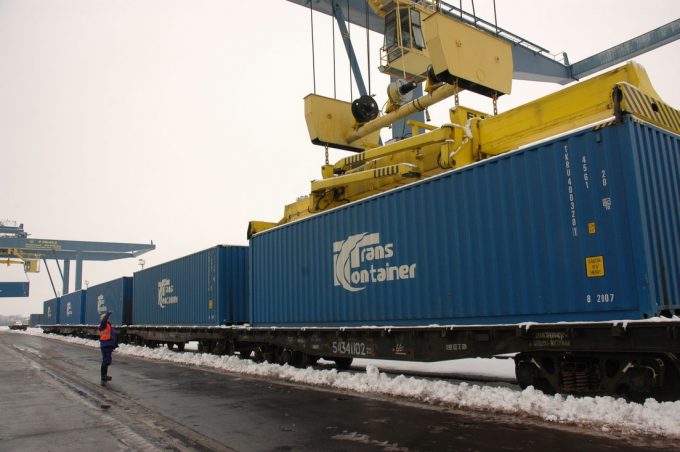Putin nationalises box line Fesco and eyes NSR development
Russian container shipping line Fesco has been nationalised – Russian president Vladimir Putin signed a ...

An eastern turn appears to have helped Russian intermodal operator TransContainer mitigate a collapse in Russian rail volumes this year.
Full-year 2022 figures from the Delo Group subsidiary indicate volume growth of 5.1%, to 1.8m teu, driven by spikes in imports (up 9.5%, to 400,000 teu) and exports (up 11.3%, to 700,000) – more than enough to offset a 200,000 teu shortfall in transit operations.
Data analyst for Odessa-based cargo consultant Informall Daniil Melnychenko told The Loadstar: “TransContainer’s intermodal traffic is heading ...
Asia-USEC shippers to lose 42% capacity in a surge of blanked sailings
USTR fees will lead to 'complete destabilisation' of container shipping alliances
New USTR port fees threaten shipping and global supply chains, says Cosco
Outlook for container shipping 'more uncertain now than at the onset of Covid'
Transpac container service closures mount
DHL Express suspends non-de minimis B2C parcels to US consumers
Zim ordered to pay Samsung $3.7m for 'wrongful' D&D charges
Flexport lawsuit an 'undifferentiated mass of gibberish', claims Freightmate

Comment on this article